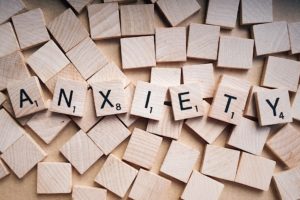Your mental health overrides everything in your life. If you don’t have a healthy mental state, not much else will really matter. And if that makes you feel anxious, you might want to read on.
 Anxiety disorders take the top spot as the number one psychiatric illness that affects both adults and children. Approximately 44 million individuals in the US alone suffer from such disorders. Sadly, only around one-third of people suffering from anxiety disorders ever receive treatment. The good news is that anxiety disorders are very treatable.
Anxiety disorders take the top spot as the number one psychiatric illness that affects both adults and children. Approximately 44 million individuals in the US alone suffer from such disorders. Sadly, only around one-third of people suffering from anxiety disorders ever receive treatment. The good news is that anxiety disorders are very treatable.
It seems the word “anxiety” is overused but misunderstood in society today. It is often said to define “worry” or confused with the word “stress.” While similar in nature, the words have meanings all their own. Let’s check into the real meaning behind the terms. Santa Monica Christian Counseling offers guidance to help individuals understand and manage anxiety more effectively.
Worry is a state of uneasiness in which your mind tends to dwell or fixate on troubles or difficulties. Worry is common when anxiety is present, but anxiety entails much more besides. Anxiety is classified as an emotion. It also involves tension, possible physical changes (like elevated blood pressure), and other symptoms as well.
There are other differences. When you worry, you are able to pinpoint what it is you are worried about. You also know what it is that is causing you to feel the deep concern you are experiencing. Anxiety, however, is usually vague. You know you feel anxious about something, but it is difficult, or impossible, to decipher what the root cause is.
While anxiety is an emotion, an anxiety disorder is a condition. It is a state of being. If you have a disorder of anxiety, you may experience anxiety attacks. Anxiety attacks are much like a panic attack but the two are not one and the same. If you have an attack of anxiety, you may very well have a panic attack during the episode. The symptoms are very much alike but it is important to know the difference.
The two most prevalent differences are the length of the attack and the intensity of it. While a panic attack will come on very sudden and usually peaks over the course of about ten minutes, anxiety attacks last much longer and are much more intense. They may grow in intensity over a period of time and often build up over days, weeks, and even months. The building that takes place is what sets an anxiety attack apart from being just an attack of panic.
Another fact which helps to distinguish the two is that a panic attack can be experienced without a real panic disorder being present but, if you have an anxiety attack, chances are good that you have a dedicated panic disorder. Anxiety disorders are known to come in all different sizes and shapes and vary from one person to the next, each with symptoms unique to the individual it is afflicting.
Ten Most Common Anxiety Attack Symptoms
 There are general symptoms that often accompany anxiety. Ten of the most common anxiety attack symptoms are: a startle response increase, restlessness, difficulty concentrating, disturbed sleep, muscle tension, irritability, restlessness, dizziness, being short of breath, and a heart rate increase. Becoming aware of the symptoms of anxiety is the initial step to figuring out if anxiety is what you are experiencing.
There are general symptoms that often accompany anxiety. Ten of the most common anxiety attack symptoms are: a startle response increase, restlessness, difficulty concentrating, disturbed sleep, muscle tension, irritability, restlessness, dizziness, being short of breath, and a heart rate increase. Becoming aware of the symptoms of anxiety is the initial step to figuring out if anxiety is what you are experiencing.
Being self-aware is a great second step. Knowing how you, as an individual, respond to specific situations is imperative. It is also important to identify your triggers and what you can do to help manage the anxiety you experience. Becoming aware of the physical symptoms that come with your anxiety is vital to overcoming it.
When you become anxious, do you get sweaty palms? Does your voice shake when you feel anxious? Maybe your heart races when anxiety hits. Identifying the symptoms that accompany your anxiety will make all the difference in the world in determining how you can decrease and redirect it prior to it getting out of hand and turning into a full-blown anxiety attack.
The more you become self-aware, the greater your chances of identifying where you’re maintaining your own causes of anxiety. In other words, you can actually be part of the problem by doing such things as anxious talking to yourself, believing false things about yourself, not asserting yourself, not nurturing yourself, and withholding feelings. You may also be tensing up your muscles, taking stimulants, and maintaining a diet that is contrary to managing your anxiety.
The practice that I find to be the most helpful in diminishing anxiety attack symptoms is being aware when you are engaging in anxious self-talk.
Self-talk refers to the conversation we all have with ourselves each and every day. This may sound just a little crazy but everyone talks to themselves. And, it probably takes place a lot more than you realize.
Internal dialogue is another word for self-talk that may sound a little more down to earth and less therapeutic. Let’s take a typical day in the life of a girl we’ll call Jane. Jane gets up, rolls her way out of bed, and says, “Oh, crud, it’s Monday.”
Slowly, she puts on her work clothes. As she steps into her pants and begins to pull them up, she takes a look into the mirror and says, “Why in the world did I have that cheeseburger yesterday?”
Janes goes to work and within the hour, submits a proposal she’s been working on for two months. Her boss doesn’t acknowledge the proposal and doesn’t give her any feedback on it either. Jane immediately starts to think that her work is a disappointment yet again.
It isn’t even lunchtime yet and Jane has already experienced internal dialogue that is so loud and prominent that it has taken a toll on her outlook, sending it into a negative spiral. Her attitude about herself is very pessimistic which ultimately affects her core beliefs about herself. She has zero self-confidence.
 You are probably thinking that Jane’s story has nothing to do with you and that you are not like her at all. But if you pay close attention to your own self-talk throughout the day ahead, you may see that you are, indeed, much like Jane. When you catch yourself engaging in negative self-talk, however, you can turn it all around. Turn it into positive self-talk. This step is a huge stride towards lifting your anxiety levels.
You are probably thinking that Jane’s story has nothing to do with you and that you are not like her at all. But if you pay close attention to your own self-talk throughout the day ahead, you may see that you are, indeed, much like Jane. When you catch yourself engaging in negative self-talk, however, you can turn it all around. Turn it into positive self-talk. This step is a huge stride towards lifting your anxiety levels.
Anxiety, sadly, is a very normal occurrence in our lives each and every day. There are a number of our life’s events that have the potential to cause our anxiety and it’s when that anxiety makes a negative difference in how we function that it becomes a real problem.
Although anxiety is a normal part of our humanity and can give us the push we need in order to succeed or to spur us to take an action that protects us from being harmed, it is also an emotion that can be very damaging and can become a problem of great magnitude. Anxiety can engulf our very being.
When anxiety becomes an emotion that is not healthy when invasive thoughts consume you every single day and you start to be distracted from your normal life because of those thoughts. Your thoughts become your beliefs about yourself and your self-talk renders you a fearful and uncertain individual who is not able to perform effectively and conduct your life in a normal way.
If you suspect that you have anxiety and have one or more of the above anxiety attack symptoms, you may be wondering what control you actually have in the matter and what your self-diagnosis really means. Having anxiety means that you will need to make some conscious changes but rest assured that you have more control than you realize.
There are three main levels that anyone who’s struggling with an anxiety disorder will need to act on so they can experience effective recovery. You will need to reduce physiological reactivity, take action to eliminate avoiding behavior, and also you will need to change your self-talk, or subjective interpretation, which ultimately enables the state or condition to linger.
Since every person struggles with anxiety differently and has different triggers, it is imperative to approach the solutions according to the unique needs of each person. Each approach will be tailored to the individual since there is no “one cure fits all”.
Anxiety is a condition that can root in one or in many factors. It can be passed down through heredity or can stem from circumstances in childhood. It can be cumulative stress that has built up over a period of time. Trauma and other stressors and biological factors can also lead to an anxiety problem and can also cause it to remain active.
The more you understand about the factors that caused your anxious state, the things that make you vulnerable, and what continues to influence it, the more you can focus on decreasing it and pinpointing the things that trigger it. While doing so does not fix the problem entirely, it is a wonderful and effective start that can shine a light in the dark corners of your anxiety issue.
 Another factor which helps to decrease anxiety is the development of coping skills that are appropriate to your personal situation. This tool is extremely important when it comes to getting healthier and becoming a better functioning individual. So, what are some beneficial coping skills?
Another factor which helps to decrease anxiety is the development of coping skills that are appropriate to your personal situation. This tool is extremely important when it comes to getting healthier and becoming a better functioning individual. So, what are some beneficial coping skills?
Healthy skills for coping with your anxious state would involve activities in which you can take part which decrease your negative emotions and assist you in processing difficult situations. The actions you take to cope healthily are ones that never hurt you. So, for example, taking drugs in order to cope is not healthy while engaging in exercise to divert your attention from your anxiety is healthy when done in moderation.
Other good examples of healthy and effective coping would be reading, painting, singing, writing, practicing martial arts, and going to see a movie. You and you alone will be the one to figure out what activity works for you to help detour your anxious thoughts and decrease your levels of anxiety.
Without the acquisition of healthy and effective coping skills, the condition of anxiety will only continue to get worse. When an individual experiences anxiety and doesn’t have an outlet that helps them to pop up to the surface for a breath of life-sustaining air, they will constantly feel as if they are drowning. They will feel completely overwhelmed all of the time and that is not good, at all. In fact, it is very dangerous.
Anxiety is a condition that can overpower you. It has the ability to prevent you from participating in your own life. Even the smallest of tasks can appear as if they were huge and things mount up so that you have trouble getting anything accomplished. This is when talk therapy is really effective in lowering your anxiety and feeling that you are supported and that you have the capability to defeat anxiety and come out a winner, in control of your life.
It is important to know that you are more powerful than the demons that haunt you. It is high time to know what your weaknesses are so you can take steps to stomp out the control they have over you. Becoming fearless is not the object of the game for that is a largely impossible task. It is about learning how to take control over the things that bind you so you can, once and for all, be free.
If you believe that you struggle with anxiety and if you want to get more answers, comfort, and help, I urge you to reach out to me or any other counselor at Santa Monica Christian Counseling. I don’t wish for you to walk the road of anxiety all alone. You are certainly not the only person who has such feelings. Don’t let your life pass you by. You will not regret taking the initiative to rid your life of anxiety today.
“Anxiety”, Courtesy of Wokandapix, Pixabay.com, CC0 License; “Hiding”, Courtesy of Claudia Soraya, Unsplash.com, CC0 License; “Adult Alone”, Courtesy of Kat Jayne, Pexels.com, CC0 License; “Forest Road”, Courtesy of bertvthul, Pixabay.com, CC0 License


